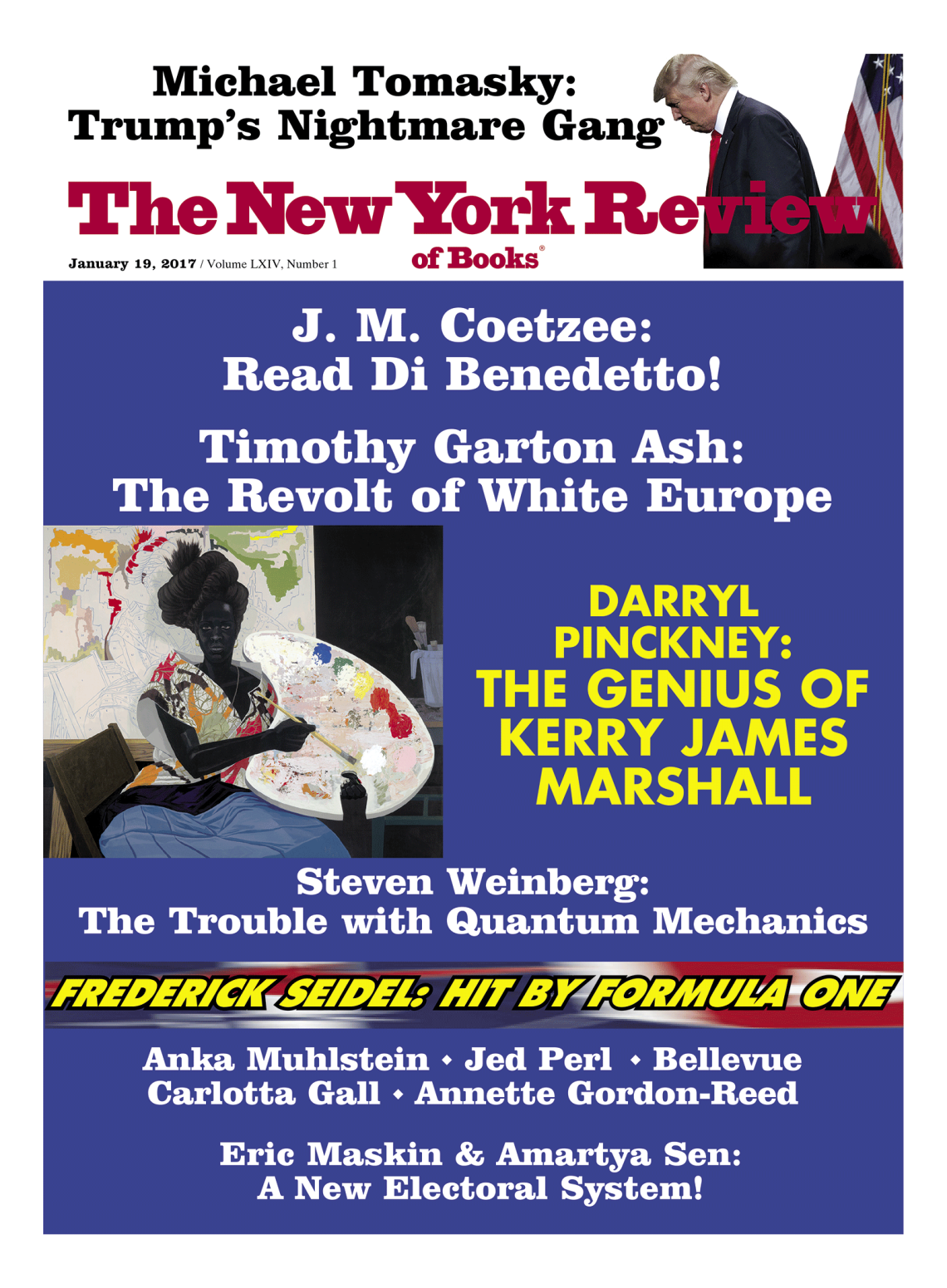In response to:
How They Wrestled with the New from the September 29, 2016 issue
To the Editors:
Thomas Nagel suggests, perhaps inadvertently, in his review of Anthony Gottlieb’s The Dream of Enlightenment [NYR, September 29, 2016] that modern physics, specifically quantum mechanics, can only be interpreted as a theory of a materialistic, Hobbesian naturalism. Certainly Professor Nagel is aware that the ontological status of quantum mechanics, the supposed theory of physical reality, is far from settled among physicists.
In his book The Road to Reality, Roger Penrose points to two of the most popular ontological interpretations of quantum mechanics given by physicists: “(a) there is no reality expressed in the (mathematical) formalism of quantum mechanics at all, and the diametrically opposite view of (b) that the quantum state completely describes actual reality with the alarming implication that all quantum alternatives must always continue to coexist.” Thus, it seems not only that a Hobbesian viewpoint is possible within modern science but also that an ontology of the reality of different perspectives or the infinity of different realities, along the lines of Spinoza and Leibniz, may continue to survive in the very heart of physical theory.
I’m sure Professor Nagel would want his readers to understand not only that the great philosophers of the Enlightenment explored this landscape of possible ontologies well before the physicists but that this “metaphysical” problem still (scandalously) persists—yay, even in the heart of the “materialistic” quantum theory of “modern” physics.
Clinton C. Jones
Sylvania, Georgia
Thomas Nagel replies:
Clinton C. Jones is certainly correct that differences over the interpretation of quantum theory are partly philosophical—but they are only loosely related to the metaphysical controversies of the seventeenth century. I believe that Penrose’s option (b), the “many worlds” interpretation of quantum mechanics favored by some physicists, is still materialistic. On the other hand, option (a), that quantum mechanics doesn’t describe reality but is merely an accurate method of predicting observations, is compatible both with the view that there is no more to reality than our observations (a form of idealism) and with the view that, although there is an underlying physical reality that actually explains the observations, a different or extended theory is needed to describe it. But I would not like to give the impression that the topic is within my competence.


